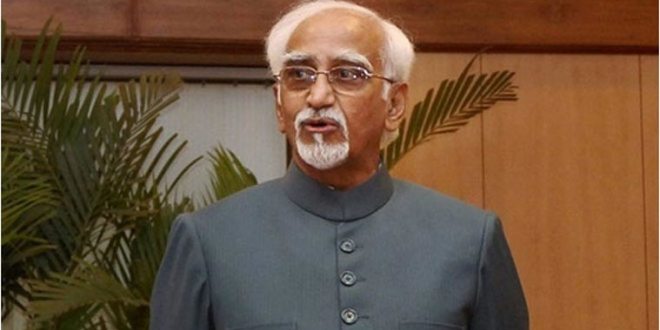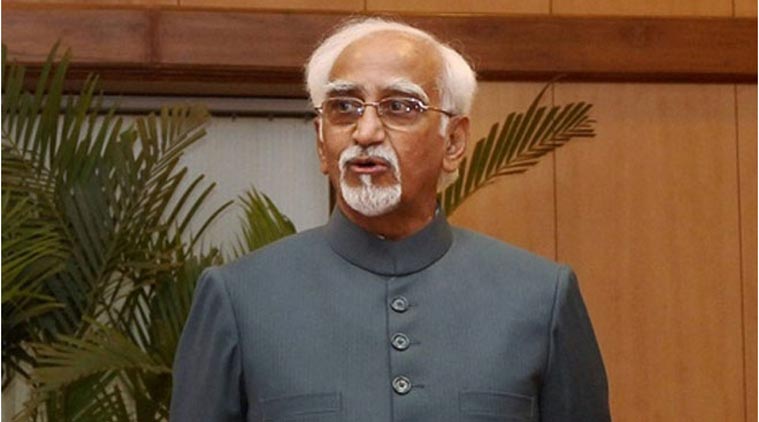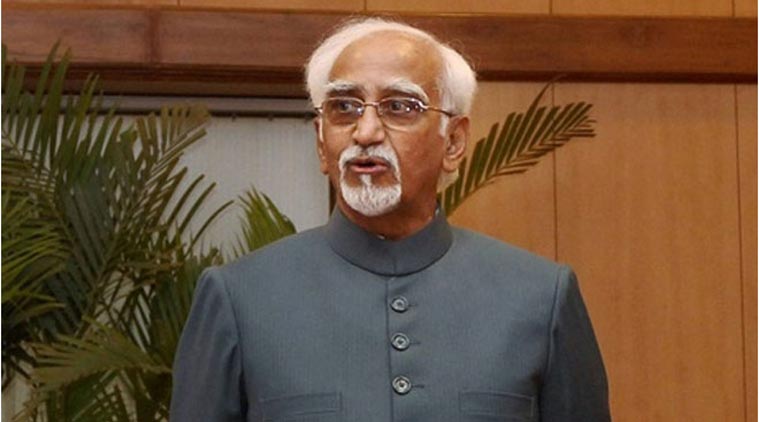Vice President Hamid Ansari joined Pakistan Prime Minister Nawaz Sharif and Presidents Ashraf Ghani of Afghanistan and Gurbanguly Berdimuhamedow of Turkmenistan in the ground-breaking ceremony of the Turkmenistan-Afghanistan-Pakistan-India (Tapi) gas pipeline in Mary, Turkmenistan. Ansari hailed the pipeline as a major step towards regional integration. It is to be completed by 2018. Will the Afghan political and security situation allow that to happen?
The prevailing conditions in Afghanistan were under focus at the Heart of Asia conference in Islamabad last week. External Affairs Minister Sushma Swaraj lead the Indian delegation. While attention was on the decision taken on the sidelines to resume the India-Pakistan dialogue, what took place between Afghanistan and Pakistan will have a major bearing on Indian security interests and the possibilities of enhancing connectivity with and through Afghanistan.
Afghanistan’s government is currently stable but Chief Executive Abdullah Abdullah is marginalised. His supporters are growing disillusioned with this extra-constitutional arrangement. There is also no indication that the agreement for constitutional amendments to create the post of an executive PM will actually be implemented. If Abdullah’s patience gives way, the entire edifice will collapse. This will certainly and adversely impact the coherence of the security forces. Meanwhile, former president Hamid Karzai is seeking to undermine the present government.
Afghanistan’s security situation continues to be difficult. When Ghani was in Islamabad, the Kandahar airport was under Taliban attack. A few days later, the Taliban targeted an area close to the Spanish embassy in Kabul. The spread of the Taliban to northern Afghanistan is especially dangerous. Their capture of Kunduz for almost a week exposed the weaknesses of the security system. Afghan security forces are doing their best, but the Taliban challenge will be grave as long as Pakistan does not move against them, which is unlikely to happen.
The Islamic State (IS) is visible in Afghanistan. But the extent of its inroads is unclear. Many feel the IS in eastern Afghanistan is only a cover to enable Pakistan to attack Tehreek-e-Taliban elements there. In any event, the Taliban will remain a more potent threat.
Ghani spent enormous political capital wooing the Pakistan army to contain the Taliban and bring them to the negotiating table. He was embittered when Pakistan revealed that Mullah Omar was dead, although it had kept up the fiction that he was alive. The generals also gave a long rope to Mansour, chosen by them to succeed Omar, to continue attacks through the spring and summer to consolidate his position. Ghani poured vitriol on Pakistan, but he is committed to engaging the Taliban and knows that the generals hold the keys for such a process.
Last week, Ghani decided to again rely on the generals to deliver the Taliban for negotiations. This did not go down well with all sections of the Afghan officialdom — intelligence chief Rahmatullah Nabil resigned. Ghani is likely to pursue the course but will the generals deliver? That will require a complete change in their outlook towards Afghanistan. There is no evidence yet of such a transformation and it is most unlikely.
Swaraj did well to raise the issue of the transportation of Indian goods to Afghanistan via the Punjab border at the conference. Ghani, too, asked for such access. However, it is almost certain that the generals will not allow such overland transit, consistent with their desire to reduce Indian interaction with Afghanistan to a minimum. Why have they then agreed to the Tapi pipeline? Because it will, when completed, be a strategic lever to offset the Indian advantage on the waters flowing from India to Pakistan.
Indian policymakers have done well to agree to supply attack helicopters to the Afghan forces. This marks a welcome departure from the old diffident policy on defence supplies. It also shows that Ghani is no longer willing to keep Indian assistance out to appease the generals. However, Ghani is inconstant, and his priority is Pakistan. It will, therefore, be appropriate to enhance India’s engagement with all sections of the political class, especially with old friends. But do not expect any timely movement on the Tapi pipeline, for the imponderables are too many.
![]()
Source: New feed








